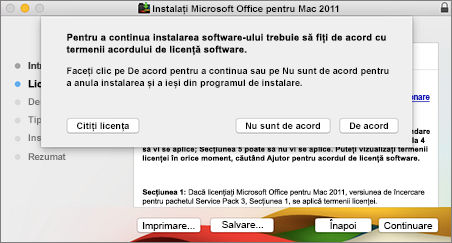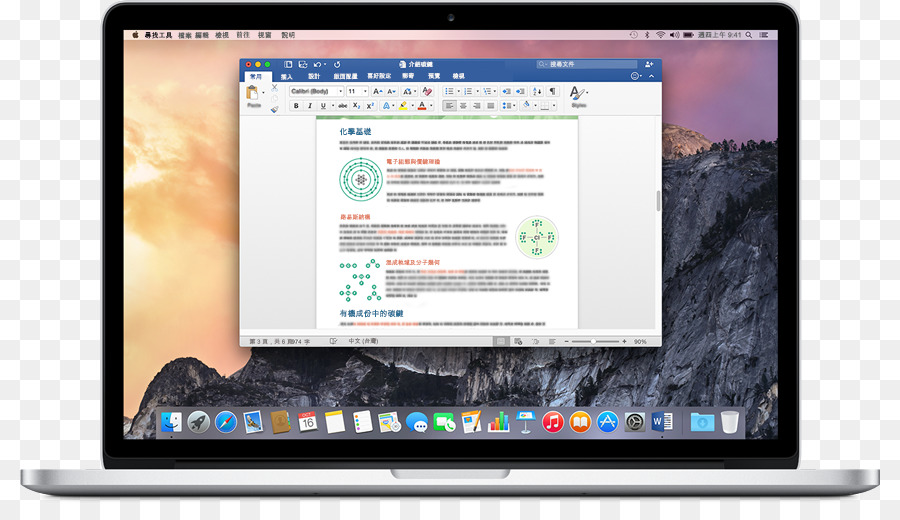Download Microsoft Office 2011 for Mac free standalone setup. The Microsoft Office 2011 for Mac is the most popular tool for creating digital documents, spreadsheets, presentations and much more.
Microsoft Office 2011 for Mac Review
Microsoft Office for Mac 2011 offers a solid update to the Word, Excel, PowerPoint, and the other members of the productivity suite. Though the latest package is still not on par with the Windows. For your convenience, we embedded the license key with the installer, therefore you do not need any license key to install this software. License and Usage Agreement: By downloading the software from this site, you agree to follow and abide the licensing terms set forth between Kean University.
Microsoft Office 2011 for Mac is one of the best and most popular applications for creating and managing the documents. Students, Teachers, Presenters, Businessmen and Social Workers can use this program to fulfill their needs related to document management. It offers a solid update to the Word, Excel, PowerPoint, and the other members of the productivity suite. With the help of MS Words, users can create any type of document with other powerful tools such as the watermark, font size, font style, and table. MS PowerPoint allows users to create the stunning presentation with many animation effects. MS Excel helps users to create spreadsheets and manage other records in easiest way.
Office 2011 for Mac features an enormous number of templates in the Template Galleries for Word, PowerPoint, and Excel. It allows users to choose among great-looking resumes and newsletters, complex photo catalogs, and calendar layouts, which let you fill in your information without the need for extra formatting. In short, Microsoft Office 2011 Mac is a complete suite that has the ability to fulfill the need of all users related to documents under a single platform. You can also Download Microsoft Office 2016 for Mac Free.
Features of Microsoft Office 2011 for Mac
- Complete suite for creating and managing the documents
- Attractive, clean and user-friendly interface
- Provides lots of templates for different categories
- Loaded with smart tools for decorating the documents
- Provides latest animations effects for presentations
Technical Details for Microsoft Office 2011 for Mac
- File Name: MS-Office-2011-v14.0.0.dmg.dmg
- File Size: 910 MB
- Developers: Microsoft
System Requirements for Microsoft Office 2011 for Mac
- Operating Systems: OS X 10.10 or later
- Memory (RAM): 2 GB
- Hard Disk Space: 2 GB
- Processor: Intel Multi-core processor
Download Microsoft Office 2011 for Mac Free

Click on the button given below to download Microsoft Office 2011 DMG for Mac. It is a complete offline setup of Microsoft Office 2011 DMG for Mac with the direct download link.
-->Applies to:Office for Mac
This article is for IT administrators and discusses frequently asked questions about the availability of Office from the Mac App Store, and the differences between downloading and distributing Office apps directly from Microsoft.
Starting in January 2019, the following Office applications are available for download from the Mac App Store:
- Microsoft Word
- Microsoft Excel
- Microsoft PowerPoint
- Microsoft Outlook
- Microsoft OneNote*
- Microsoft OneDrive*
* These apps were also available from the Mac App Store in previous years.
What version of Office is available from the Mac App Store?
The Office apps available from the Mac App Store provide the very latest production version of Office on the Mac. Word, Excel, PowerPoint, and Outlook require an Office 365 subscription to activate. OneNote and OneDrive do not require an Office 365 subscription, but some premium features may require an Office 365 subscription. All apps are compatible with Office 365 subscription plans, such as Office 365 A3, Office 365 A5, Office 365 Enterprise E3, Office 365 Enterprise E5, and Office 365 ProPlus.
Note
Some Office 365 subscriptions don't include access to downloadable Office apps. For example, the Office 365 A1, Office 365 Enterprise E1, and Office 365 F1 plans. For more information, see Office 365 plans.
Can I use apps from the Mac App Store with my Volume License?
No. Perpetual licenses, including Office 2019 and Office 2016, are not supported with Office apps available from the Mac App Store. The Volume License (VL) Serializer is not compatible with these apps. Attempts to use a perpetual license with Mac App Store apps will cause the apps to enter reduced functionality mode.
How do I deploy Office apps from the Mac App Store to computers in my organization?
You need an enterprise mobility management (EMM) tool that supports either Apple's Volume Purchase Program (VPP), Apple Business Manager, or Apple School Manager. For example, Jamf Pro is compatible with these programs and can be used to deploy Office apps. Office supports managed distribution, which allows your Mobile Device Management (MDM) server to install Office even when the user does not have an Apple ID. Office apps cannot be distributed through redeemable codes.
While a consumer may acquire Office through the Mac App Store as a bundle with a single-click download, IT admins will need to deploy the individual apps.
When deployed through the Mac App Store, does Office behave differently, or provide less functionality?
Word, Excel, PowerPoint, Outlook, and OneNote provide the same end-user functionality regardless of how it is deployed. IT admins have traditionally deployed Office from Microsoft's Content Delivery Network (CDN), but now have the option of deploying from the Mac App Store.
The OneDrive app, when acquired from Microsoft's CDN, offers IT admins more deployment flexibility such as pre-enabling icon overlays and system access. When acquired from the Mac App Store, users will see additional prompts to enable this functionality.
The Office builds available from the Mac App Store are production builds and are usually updated on a monthly basis. The Office Insider program is not supported through the Mac App Store. If you wish to use the Insider Slow or Fast channels, you should continue to install Office apps from the Microsoft CDN.

Microsoft Teams and Skype for Business are not available through the Mac App Store and must be deployed from the Microsoft CDN.
How do Office updates occur?
When Office apps are deployed through the Mac App Store, it is the sole responsibility of the App Store to keep those apps up-to-date. Conversely, apps deployed from Microsoft's CDN are updated through the Microsoft AutoUpdate (MAU) tool. Content caching services in macOS can be used (and is highly recommended) to optimize both the installation and update process of Office apps acquired through the Mac App Store.
The download size of monthly update packages is the same, regardless of whether the CDN or Mac App Store is used for deployment.
Can I convert an existing CDN-based Office installation to Mac App Store?
If a user launches the App Store app on their Mac, they may see that Office apps are available for download even though Office is already installed from Microsoft's CDN. Depending upon the currently installed Office build, and the build available in the Mac App Store, the existing app may or may not get overwritten. For example, if the build of Office currently installed is newer than what is available from the Mac App Store (such as an Insider build), it will not be overwritten if the user chooses to download the Mac App Store build.
There is no automated process for performing a CDN to Mac App Store conversion. Depending on your EMM's capabilities, you may be able to orchestrate the process through a script. The high-level steps for each Mac are as follows:
- Close all Office apps
- Remove the Office apps from the /Applications folder
- Remove the Office entries from the keychain
- Remove the Office package registrations (
pkgutil --forget) - Trigger the MDM server to install the Office apps (such as
jamf recon)
While CDN-based installations of Office can utilize the bandwidth-optimized suite installer, which is approximately 1.8 GB in size, the total size of the same apps when deployed through the Mac App Store is approximately 4 GB.
How can I tell if an Office app was downloaded from the Mac App Store?
- Open Finder, and navigate to the Applications folder
- Locate the Office app (such as Microsoft Outlook.app), control-click, and choose Show Package Contents
- Navigate into the Contents folder
- If a folder named
_MASReceiptis present, the app was downloaded from the Mac App Store
How do I manage Office policies and preferences with apps downloaded from the Mac App Store?
Word, Excel, PowerPoint, Outlook, and OneNote offer the same policies and preferences as their CDN-based counterparts. IT admins do not need to alter existing Configuration Profiles as the bundle ID for each app is unchanged.
Note
OneNote does use a different bundle ID, and different management controls are available depending on how you obtain the app. For more information, see Deploy and configure the new OneDrive sync client for Mac.
Microsoft Office 2011 Mac Installer On Mac Pro
It is highly recommended that IT admins set the OfficeAutoSignIn value to TRUE in the com.microsoft.office preferences domain. For new installations from the Mac App Store, this preference will bypass the first run dialogs that ask users if they wish to purchase a new Office 365 subscription. This will mitigate calls to the help desk in commercial environments as users can only activate an existing subscription.